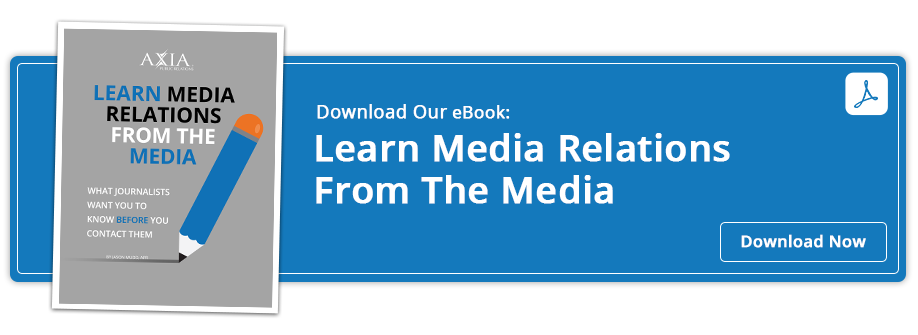 What to do when the media calls
What to do when the media calls
Too often, companies discount the value of media coverage. Some get anxious about it while others are just too busy, but most simply don’t know what to do. The media has a responsibility to cover business news and industry trends. Your organization has a critical role in this process. With a prompt and strategic response, your business can leverage valuable opportunities for media coverage.
These 10 tips will help you manage calls from the media:
-
Identify your primary media contacts and authorized company representatives. Train your staff on this policy to avoid miscommunications and embarrassing gaffes later on.
-
Respond to media calls immediately. This is your chance to build a positive relationship with the reporter who’s attempting to contact you and may be your only opportunity to do so.
-
Ask about the reporter’s deadline, media organization, assignment and angle. You’ll want to know his approach, audience and urgency. Then you can prepare key messages, company representatives and response times.
-
Know what’s significant and set the agenda; you are the expert. List the three big points that the reporter and her audience should know about your organization and this topic. If you don’t have the list memorized backward and forward, have a hard copy of it in front of you.
-
Speak in sound bites, even for print outlets. Make clear and concise statements, avoid jargon and explain technical information. Otherwise, the reporter will be forced to edit your quote and may even take it out of context.
-
Always give truthful answers. Stay positive and address issues head-on; set the record straight. When appropriate, admit guilt and offer real solutions. Don’t dodge a question – you’ll look like an ostrich with your head in the sand and only your rear sticking up.
-
Never guess. Say, “'I don’t know the answer to that question, but I will look into it and respond by 5 p.m.”
-
Be accommodating. Journalists are busy managing lots of information, multiple assignments and deadlines. The more helpful you can be, the easier it is for them to do good work and give you fair coverage. Offer any available photographs, video footage, background information and research.
-
Be proactive. Offer a 24-hour phone number that the reporter can use for additional questions and fact confirmation.
-
Follow up. If you left out important details or there may be an error, contact the reporter immediately.
If you have a PR firm on retainer, contact your team to assist you in finding the best way to respond to reporters and their stories. If you don’t have a PR firm on retainer, call Axia Public Relations today at 888-PR-FIRM-8 so we can assist you with handling the media or provide media training.

 Clients love Jason’s passion, candor and commitment as well as the team he has formed at Axia Public Relations. He’s advised some of America’s most admired brands, including American Airlines, Dave & Buster’s, Hilton, HP, Pizza Hut and Verizon. He is an Emmy Award-winning, accredited public relations practitioner, speaker, author and entrepreneur and earned his certification in inbound marketing. He founded the PR firm in July 2002. Learn more about Jason.
Clients love Jason’s passion, candor and commitment as well as the team he has formed at Axia Public Relations. He’s advised some of America’s most admired brands, including American Airlines, Dave & Buster’s, Hilton, HP, Pizza Hut and Verizon. He is an Emmy Award-winning, accredited public relations practitioner, speaker, author and entrepreneur and earned his certification in inbound marketing. He founded the PR firm in July 2002. Learn more about Jason.
Featured image credit: 123rf.com
Topics: public relations, spokesperson training, earned media

Comment on This Article